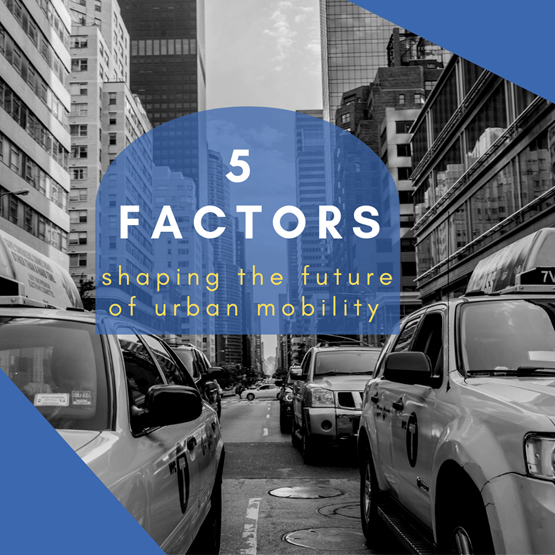While many companies may choose to retain the fleet manager job title, reality is that mobility manager is becoming more apt.
Business travel is changing as technology opens new mobility horizons for fleet managers and their employers.
While the company car will still be king, the way it is used faces fundamental changes as new technology and transport choices take a more significant role in corporate mobility strategies.

A wealth of new opportunities for business transport have been enabled by lower software and hardware costs, the almost universal use of smartphones that are as powerful as older desktop computers, the rise of the connected car and a growing number of multi-modal services.
Companies can start to make more intelligent travel choices, based on a range of options rather than employees simply heading for the company car park.
Ian Forbes, head of the Government’s Centre for Connected and Autonomous Vehicles, says: “No one can predict the future and that includes connected and autonomous vehicles.
"However, what’s really important is first of all recognising that change is coming, second being clear on what you want from that change and third being able to adapt in response to the information when it arrives.”
There are also sound economic reasons for embracing intelligent mobility.
Rising traffic levels are leading to increased congestion, while a growing urban population is prompting Government and local authorities to consider strategies to encourage alternative forms of travel to the private car.
Employees are also playing a critical role in the development of mobility services, as their acceptance of new travel options will be key to their success.
Even the company car itself is facing fundamental changes, as it becomes more connected, intelligent and autonomous.
Fleet managers will already be familiar with the latest generation of features in cars, ranging from adaptive cruise control to self-parking and even smartphone apps which allow certain parts of the car to be externally controlled.
New developments that will become more common include keys being replaced by apps, which can allow drivers to share use of a car without handing over a physical key.
New autonomous features will allow drivers to summon cars to their location in certain circumstances.
There will also be an ecosystem of services that develops around this new era of corporate mobility, ranging from in-car payment systems to communication and entertainment services.
READ MORE: five factors shaping the future of urban mobility
Olaf Schilgen, who is responsible for future technologies, electromobility, external affairs and sustainability at Volkswagen, says: “We have 300 different models. We can’t change all the models in five years; that’s not possible because the customer won’t change that fast either.
“You always have to think about the customer and the customer has to change as well if you want to sell new products.
“We cannot move faster than our customers and we should not move slower. Interest is spreading. It is going faster than we thought maybe a few years ago.”
The key to the development of these services and technologies is data.
Cars now generate many gigabytes of data on each journey from a number of sensors that will play a critical role in enabling new autonomous technologies to work.
Modern telematics systems mean basic data about vehicle performance and movement can be shared with fleet management systems and employers.
As autonomous technologies develop, systems will need to communicate with other vehicles, road infrastructure and process vast amounts of data in real-time.
Data also forms the foundation of intelligent mobility services, which provide a constant stream of information about availability of alternative transport, from car sharing to trains and even bikes, with instant booking available through a single platform.

Paul Campion, (pictured above) chief executive officer of the Transport Systems Catapult, says: “Both connected, autonomous vehicles and what is commonly known as Mobility as a Service (MaaS) are dependent on data.
“I have heard the expression being used that data is the new oil. Data is the foundation of a new value chain. I see the underpinning data as being absolutely fundamental.”
For years, analysts have talked about the rise of the mobility manager, but modern technology means every fleet manager now needs expertise that goes well beyond basic vehicle management to encompass telematics, car-sharing services, data management and software systems.
Technological development also means managers can encourage the greenest option of all by not travelling, through the use of conference calling or software such as Skype.
The coming years will bring a number of challenges as connected cars offer increasing levels of autonomy to drivers, while also providing greater insight on vehicle movement patterns.
As a result, while company employees may still retain the job title of fleet manager, the days of the mobility manager are already here.
Suppliers develop new mobility services
Industry suppliers are adapting their services for the new mobility environment.
Alphabet, for example, has recruited a new team of field-based mobility consultants to provide fully-integrated mobility services to clients.
Since the beginning of the year, the company has been working to merge its daily rental and extended offerings.
Alphabet head of mobility services Nick Butler has recruited a new team of mobility consultants to work with commercial teams.
This enables them to incorporate corporate car sharing and rental in a single service.
Butler says: “We’ve transformed the way that Alphabet delivers our rental services to customers and we’ve instilled a mind-set across the whole business that rental is absolutely integral to our mobility offering.
“In the past, rental was seen as a peripheral, add-on service rather than a core offering like leasing and fleet management. But there’s been a sea-change in the industry and among forward-thinking customers that rental is an absolutely fundamental piece of the mobility jigsaw.
“I think it reflects a wider market shift for businesses to outsource their rental requirements to expert providers and enable their employees to self-service and access services on demand. This, in turn, means that businesses need less admin resource in-house and so can focus on their own core, value-adding activities.”
Main requirements for intelligent mobility
Intelligent mobility is a new way to think about journeys.
It attempts to meet user needs through efficient and seamless journeys, with a broader perspective than focusing on specific transport modes or infrastructure.
Instead, the focus is on what people and businesses value, enabling commercially viable solutions to be developed for effective, efficient and reliable use of networks, vehicles and transport services.
Intelligent mobility requires:
- Understanding of the needs, preferences and behaviours of people and businesses;
- The exploitation of data;
- Exploiting technology such as the Internet of Things, sensors and autonomous systems;
- Transport networks that operate freely and reliably, offering the right capacity and seamless interchange;
- A strong commercial market with reliable suppliers that constantly innovate.





















JIMBOB - 25/04/2019 09:23
Lots of long words, creating more uncertainty over roles and responsibilities. To me it misses the point; certainly for company cars (perk - not job) they are moving inexorably to Pay on Use - all consumer behaviour points this way and government legislation (lack off) supports this. Consumers will use a car when they want and the key to this business group is a payments solution... For job cars and LCV the future is somewhat unclear - sooner or later there will be a tipping point to full EV. The current tax regime doesn't really deal with that particularly well and the inevitable outcome is Pay on Use - yep - we'll be going back to every mile travelled driving the tax regime! Hence connected car - but beyond that I see little corporate upside... We have to remember the revenue generated from company cars is ~£2 Bil p.a. - sounds allot BUT the government raises ~£30 bn from fuel escalator every year. So Company cars is not top of governments policy initiatives!!! With some many other major issues - dare I mention the Brexit word!!! So today the clever fleet manager should seek to accelerate any short term benefits they can from the car fleet; because if your thought WLTP and RDE2 was big wait for these changes!!! So move to EV ASAP (although massive supply side issues and broader infrastructure challenges), consider ECO to optimise car fleet BIK issues where your fleet allows, Vans - less discussed but as they get affected by WLTP in 2020 lets see what happens to the core work horses of most fleets...